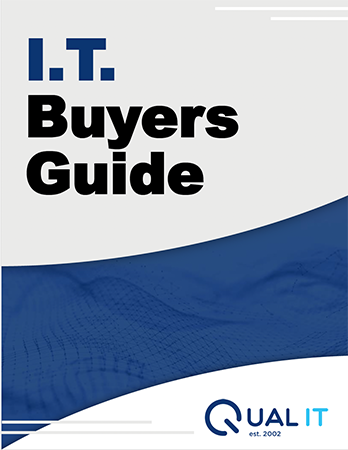 Last December, one of our partner agencies in downtown Salt Lake City got hit with what seemed like a simple request: A team member received a text from the "agency owner," asking for $2,000 in Visa gift cards to be used for client giveaways. It was the week before Christmas. Phones were ringing. Quoting season was in full swing. The assistant, flustered but loyal, did exactly what the message said.
Last December, one of our partner agencies in downtown Salt Lake City got hit with what seemed like a simple request: A team member received a text from the "agency owner," asking for $2,000 in Visa gift cards to be used for client giveaways. It was the week before Christmas. Phones were ringing. Quoting season was in full swing. The assistant, flustered but loyal, did exactly what the message said.
By the time the real agency owner walked in 30 minutes later, the cards were gone—and so was the money.
That scam may sound small, but what if we told you another insurance agency in the region fell for a business email compromise (BEC) scheme that siphoned over $380,000 in fake wire transfers right before year-end closeout?
If you think your agency is too small to be targeted, think again. Cybercriminals are banking on that mindset. Gift card scams alone cost U.S. businesses over $217 million in 2023. And BEC attacks? They accounted for a whopping 73% of all reported cyber incidents in 2024.
Holiday season is prime time for these attacks—your team is buried in policy renewals, bonuses, client gifts, and travel schedules. It’s the perfect storm.
5 Holiday Scams Every Salt Lake City Insurance Agency Must Watch For
- "Your Principal Needs Gift Cards" (The $2,000 Loyalty Trap)
The Scam: Hackers impersonate agency principals or producers, pressuring CSRs or account managers to "urgently" buy gift cards for clients or staff appreciation.
Why It Works: It plays on the fast pace and culture of client service. It feels like something your boss might do.
How to Stop It: Set a written company policy: no gift card purchases without two-person approval, and never via text. Train your staff to verify requests with a phone call.
- Fake Invoices, Real Damage (The Banking Info Switcheroo)
The Scam: Cybercriminals inject themselves into email threads with your vendors or MGA’s, asking to "update banking details" right as you're issuing Q4 payouts.
Real Case: One agency in Ogden paid $34,000 to a fake premium finance account just before Christmas.
How to Stop It: Never change payment info based on an email alone. Always verify by calling a known number already on file. Add a verification protocol for all ACH and wire transactions over $5,000.
- Fake Shipping Notifications (They Look Legit. They're Not.)
The Scam: Your team gets texts or emails from fake USPS or UPS senders, claiming a failed delivery of client documents or policy packets.
Why It Works: During the holidays, you’re likely sending and receiving more packages. Staff rush to resolve issues.
How to Stop It: Bookmark carrier sites. Train your team to never click tracking links from emails—especially during busy seasons.
- "Holiday Party Attachments" That Bring Malware to the Party
The Scam: Staff get an attachment labeled "Holiday_Party_List.xls" or "Secret_Santa.pdf" that installs malware the moment it’s opened.
Why It Works: It looks like harmless office fun—maybe even from HR.
How to Stop It: Disable macros in your office software. Scan all attachments, and make it protocol to verify unexpected files, even if they seem internal.
- Phony Fundraisers (Fake Charities, Real Heartache)
The Scam: Scammers pose as charities or pretend your agency is running a "company match" campaign to double donations.
Why It Works: Insurance advisors are generous by nature. These campaigns tug at the heart.
How to Stop It: Share a list of verified charities with your team. Route all donations through official, pre-approved platforms.
Why These Attacks Work So Well (And Why Insurance Advisors Are at Higher Risk)
Look, your agency relies on tools like email, banking portals, carrier integrations, and AMS/CRM systems to run day-to-day. That’s the same digital infrastructure hackers target.
This isn’t the old-school "Nigerian prince" playbook anymore. These are targeted, research-backed scams designed to trick smart, well-meaning people.
Worse? Most insurance agencies in Salt Lake City don’t have formal security training in place.
Phishing simulations reduce employee click-through rates by over 60%, but few local agencies invest in them.
Multifactor authentication blocks 99% of unauthorized logins, yet many advisors still rely on just passwords.
If your agency is running without these basic protections, you’re not just at risk. You're exposed.
The Salt Lake City Holiday Cybersecurity Checklist for Insurance Agencies
Before your team checks out for the holidays, check these boxes:
- The Two-Person Rule: Require phone confirmation for all financial actions above $5,000.
- Gift Card Policy: Put it in writing. No gift card purchases via text or email. Period.
- Vendor Verification Protocol: Always verify banking info changes by calling your known contact.
- MFA Everywhere: Email, CRM, AMS, accounting software. Turn it on now.
- Team Awareness Briefing: 15 minutes. Share the top five scams. Use real-life examples like the ones above.
The Real Cost Isn’t Just Dollars
While a national chemical company lost $60 million in a BEC attack, local agencies feel the pain just as acutely:
- Interrupted Operations: Downtime during peak renewal season.
- Lost Productivity: Hours spent chasing down fraud instead of writing policies.
- Client Trust Damage: If client data is compromised, the reputational hit is brutal.
- Insurance Premium Hikes: One breach can double your cyber liability premiums.
Even one BEC attack can cost the average agency over $129,000. For many small to mid-sized firms, that could be the difference between closing Q4 strong and starting the new year in damage control.
Keep This Holiday Season Secure (Without Turning Into Scrooge)
The holidays should be a time of celebration and connection with clients—not recovery mode.
A quick policy update. A 15-minute team briefing. A security layer or two. These are the difference makers.
Because here’s the truth: One simple phone call could have saved that $380,000. And that’s exactly why we do what we do.
Need help securing your Salt Lake City insurance agency before year-end?
Click here to schedule your free network assessment with Qual IT
Because the best gift you can give your agency this season is peace of mind.



